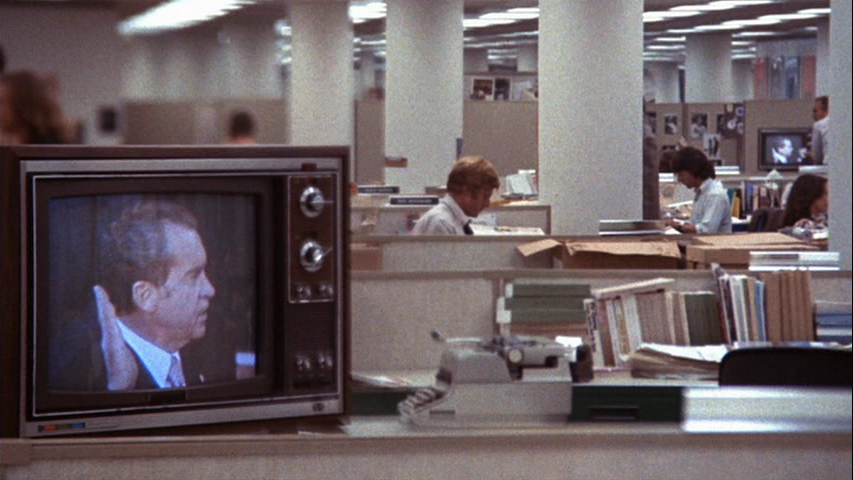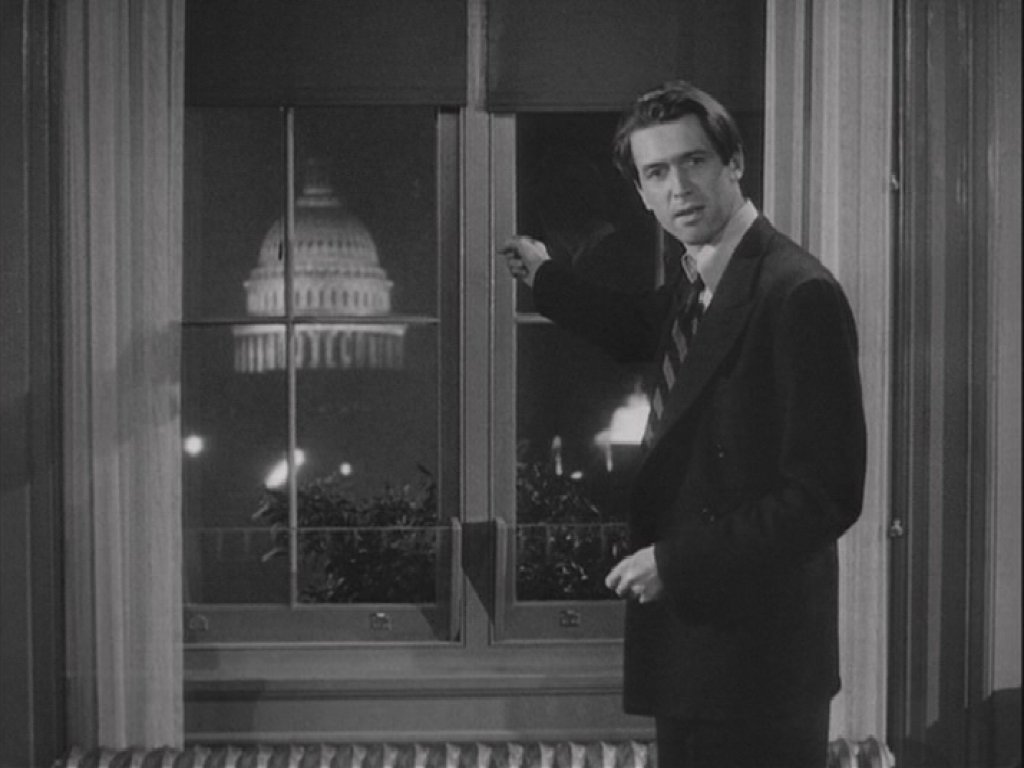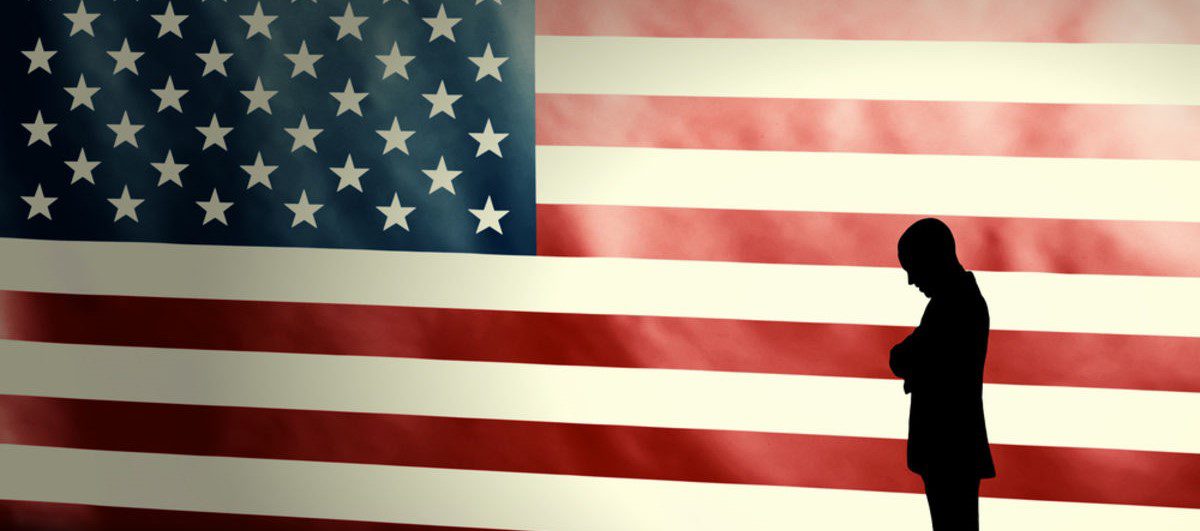
I’m really glad I decided to tackle this mountain of film called the IMDb Top 250. In this post, I want to take a closer look at#248, Shadow of a Doubt. I consider myself a Hitchcock fan, but this is one of his masterpieces that I had never seen before. I’m not sure why I avoided it for so long, perhaps it was simply lack of opportunity. But no one has an excuse to not see this film. Heck, you don’t even have to pay for it. You can watch the whole thing right now on YouTube. In fact, Alfred Hitchcock on The Dick Cavett Show in 1972 said that Shadow of a Doubt was his favorite of all his films. Being familiar with his films and sharing his dry and bleak sense of humor, I can see why.
The actors were superb, famous in their time, but not superstars. Teresa Wright, who remains the only performer ever to be nominated for Oscars for her first three films (The Little Foxes, Mrs. Miniver, The Pride of the Yankees), stars as young Charlie (Charlotte) who is tired of being a ordinary girl in an ordinary family. She believes that inviting her Uncle Charlie from Philadelphia will invite some much needed happiness to her depressing surroundings. But Uncle Charlie, portrayed superbly by Joseph Cotten who had a role in Citizen Kane and starred in The Magnificent Ambersons, has his own secret reasons for leaving Philadelphia to stay with his sister in Santa Rosa for an undetermined amount of time.
 Hitchcock collaborated with Thornton Wilder, author of Our Town, to portray Santa Rosa, California as Hometown U.S.A. With warm lighting and a friendly atmosphere, they deliberately makes us prefer the small Santa Rosa to the cold and industrial backdrop of Philadelphia. Hitchcock wanted to slowly introduce some darkness to these bright and cheerful surroundings. This was a social commentary in his day. While this film was produced and released in 1943, it is set in 1941. Many people my age wouldn’t even blink at the simple two year difference, but anyone who lived during those two years knows that they weren’t ordinary years. The bombing that occurred on December 7, 1941 irreparably changed the world the same way that the arrival of Uncle Charlie did that peaceful family and especially his admiring niece Charlotte.
Hitchcock collaborated with Thornton Wilder, author of Our Town, to portray Santa Rosa, California as Hometown U.S.A. With warm lighting and a friendly atmosphere, they deliberately makes us prefer the small Santa Rosa to the cold and industrial backdrop of Philadelphia. Hitchcock wanted to slowly introduce some darkness to these bright and cheerful surroundings. This was a social commentary in his day. While this film was produced and released in 1943, it is set in 1941. Many people my age wouldn’t even blink at the simple two year difference, but anyone who lived during those two years knows that they weren’t ordinary years. The bombing that occurred on December 7, 1941 irreparably changed the world the same way that the arrival of Uncle Charlie did that peaceful family and especially his admiring niece Charlotte.
Critics were quick to call this film cynical or morally vague, words that would come to characterize Hitchcock’s style of film-making, but in the wake of the great depression, a gruesome war, and the ever-present fear of nuclear holocaust the world itself became much more cynical and morally vague. Much like Uncle Charlie, Hitchcock entered our country in a time of peace, as a welcomed guest, and he forever changed our whole way of thinking about movies.
 As we get closer to Christmas, I know that I will inevitably see at least a scene or two from Frank Capra’s It’s a Wonderful Life. If you think about it, Hitchcock is like the anti-Capra. Another classic-film lover named Bill Wren said on his blog Piddleville, “Shadow of a Doubt presents us with an almost quintessential American town of the 1940′s. It’s almost Capra-esque. In a way, Shadow of a Doubt is George Bailey’s Bedford Falls from It’s a Wonderful Life except where Capra brings an angel to it, Hitchcock brings the devil.”
As we get closer to Christmas, I know that I will inevitably see at least a scene or two from Frank Capra’s It’s a Wonderful Life. If you think about it, Hitchcock is like the anti-Capra. Another classic-film lover named Bill Wren said on his blog Piddleville, “Shadow of a Doubt presents us with an almost quintessential American town of the 1940′s. It’s almost Capra-esque. In a way, Shadow of a Doubt is George Bailey’s Bedford Falls from It’s a Wonderful Life except where Capra brings an angel to it, Hitchcock brings the devil.”
The singular flaw that prevents Shadow of a Doubt from being one of Hitchcock’s elite is the completely formulaic and totally unnecessary romance. It feels totally contrived and out of place. Perhaps this was Hitchcock’s way of showing that although young Charlie has grown through her ordeal, she hasn’t yet grown enough to see that the addition of others to your life will not make you happy if you cannot first be happy alone. If this was his aim, he was very subtle. Today, they would make a sequel in which we find out that her love interest is in fact a serial killer himself.
 So what happens when young Charlie realizes the truth about her beloved Uncle? Will she get a chance to reveal his secret, or will he choke her into silent submission? I won’t ruin that ending of the movie for you. Take an hour and a half off and watch it yourself. By the end, you will be humming the Merry Widow Waltz and contemplating the state of the world. What do you think of Uncle Charlie’s assessment of our lives? “You live in a dream. You’re a sleepwalker, blind. How do you know what the world is like? Do you know the world is a foul sty? Do you know, if you rip off the fronts of houses, you’d find swine? The world’s a hell. What does it matter what happens in it? Wake up, Charlie.”
So what happens when young Charlie realizes the truth about her beloved Uncle? Will she get a chance to reveal his secret, or will he choke her into silent submission? I won’t ruin that ending of the movie for you. Take an hour and a half off and watch it yourself. By the end, you will be humming the Merry Widow Waltz and contemplating the state of the world. What do you think of Uncle Charlie’s assessment of our lives? “You live in a dream. You’re a sleepwalker, blind. How do you know what the world is like? Do you know the world is a foul sty? Do you know, if you rip off the fronts of houses, you’d find swine? The world’s a hell. What does it matter what happens in it? Wake up, Charlie.”
Thanks for watching with me. Next week provides a jump from pre-television wartime to fun loving computer animation and offers a much more lighthearted film, Toy Story 2. I hope you’ll join me.
 All the President’s Men – I referenced this movie just a few weeks ago when I looked at Spotlight because of the parallels that I saw in the two movies in terms of journalism. But All the President’s Men shows not only the journalistic side but also the political side of the Nixon Watergate scandal. It is seriously compelling and is well worth the time to watch it.
All the President’s Men – I referenced this movie just a few weeks ago when I looked at Spotlight because of the parallels that I saw in the two movies in terms of journalism. But All the President’s Men shows not only the journalistic side but also the political side of the Nixon Watergate scandal. It is seriously compelling and is well worth the time to watch it. Mr. Smith Goes to Washington – I’m surprised that Marco Rubio doesn’t use this film on his Campaign trail. If you are unfamiliar, it tells the story of a man who is set to be a senator by the spineless governor of his state. He is a naive and idealistic and he wants to change everything starting from the building of a camp for children but his plans promptly collide with political corruption and there the true fight starts.
Mr. Smith Goes to Washington – I’m surprised that Marco Rubio doesn’t use this film on his Campaign trail. If you are unfamiliar, it tells the story of a man who is set to be a senator by the spineless governor of his state. He is a naive and idealistic and he wants to change everything starting from the building of a camp for children but his plans promptly collide with political corruption and there the true fight starts.

 Hitchcock collaborated with Thornton Wilder, author of Our Town, to portray Santa Rosa, California as Hometown U.S.A. With warm lighting and a friendly atmosphere, they deliberately makes us prefer the small Santa Rosa to the cold and industrial backdrop of Philadelphia. Hitchcock wanted to slowly introduce some darkness to these bright and cheerful surroundings. This was a social commentary in his day. While this film was produced and released in 1943, it is set in 1941. Many people my age wouldn’t even blink at the simple two year difference, but anyone who lived during those two years knows that they weren’t ordinary years. The bombing that occurred on December 7, 1941 irreparably changed the world the same way that the arrival of Uncle Charlie did that peaceful family and especially his admiring niece Charlotte.
Hitchcock collaborated with Thornton Wilder, author of Our Town, to portray Santa Rosa, California as Hometown U.S.A. With warm lighting and a friendly atmosphere, they deliberately makes us prefer the small Santa Rosa to the cold and industrial backdrop of Philadelphia. Hitchcock wanted to slowly introduce some darkness to these bright and cheerful surroundings. This was a social commentary in his day. While this film was produced and released in 1943, it is set in 1941. Many people my age wouldn’t even blink at the simple two year difference, but anyone who lived during those two years knows that they weren’t ordinary years. The bombing that occurred on December 7, 1941 irreparably changed the world the same way that the arrival of Uncle Charlie did that peaceful family and especially his admiring niece Charlotte. As we get closer to Christmas, I know that I will inevitably see at least a scene or two from Frank Capra’s It’s a Wonderful Life. If you think about it, Hitchcock is like the anti-Capra. Another classic-film lover named Bill Wren said on his blog
As we get closer to Christmas, I know that I will inevitably see at least a scene or two from Frank Capra’s It’s a Wonderful Life. If you think about it, Hitchcock is like the anti-Capra. Another classic-film lover named Bill Wren said on his blog  So what happens when young Charlie realizes the truth about her beloved Uncle? Will she get a chance to reveal his secret, or will he choke her into silent submission? I won’t ruin that ending of the movie for you. Take an hour and a half off and watch it yourself. By the end, you will be humming the Merry Widow Waltz and contemplating the state of the world. What do you think of Uncle Charlie’s assessment of our lives? “You live in a dream. You’re a sleepwalker, blind. How do you know what the world is like? Do you know the world is a foul sty? Do you know, if you rip off the fronts of houses, you’d find swine? The world’s a hell. What does it matter what happens in it? Wake up, Charlie.”
So what happens when young Charlie realizes the truth about her beloved Uncle? Will she get a chance to reveal his secret, or will he choke her into silent submission? I won’t ruin that ending of the movie for you. Take an hour and a half off and watch it yourself. By the end, you will be humming the Merry Widow Waltz and contemplating the state of the world. What do you think of Uncle Charlie’s assessment of our lives? “You live in a dream. You’re a sleepwalker, blind. How do you know what the world is like? Do you know the world is a foul sty? Do you know, if you rip off the fronts of houses, you’d find swine? The world’s a hell. What does it matter what happens in it? Wake up, Charlie.”